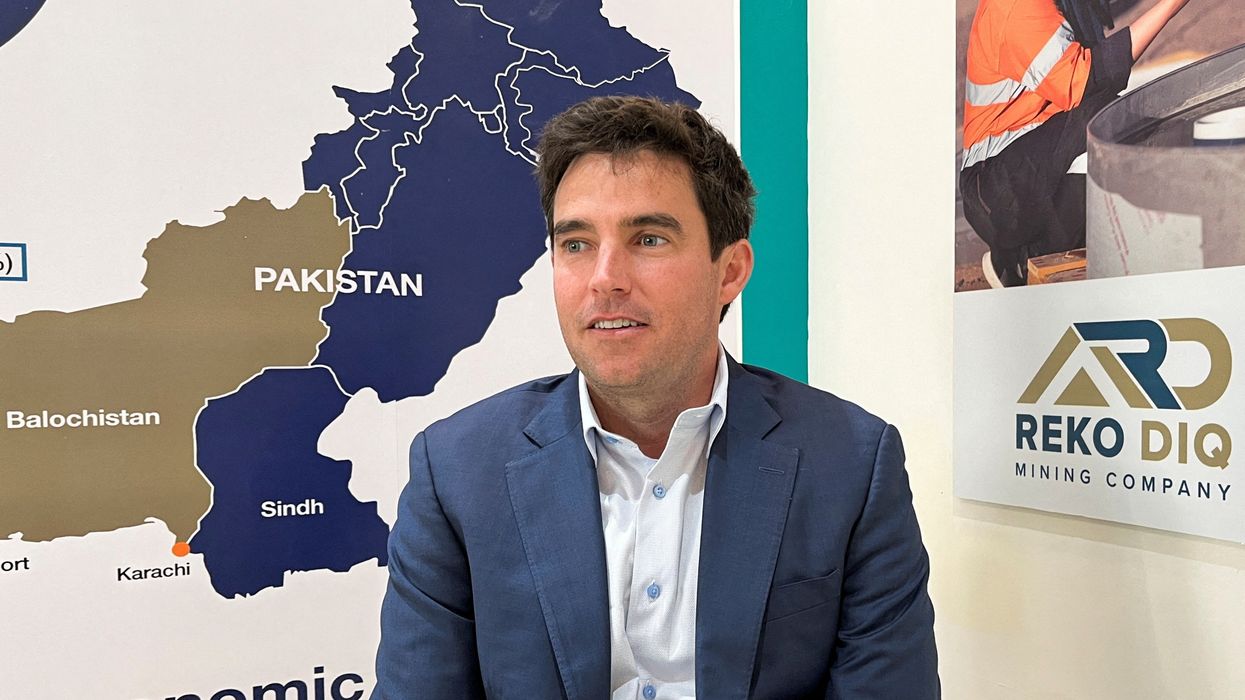PAKISTAN will provide robust security to protect the interests of investors and partners, its army chief told a minerals conference on Tuesday (8), amid heightened unrest in key mineral-rich province Balochistan.
Pakistan is hosting a two-day mines and minerals conference with delegates from countries including the United States, China and Saudi Arabia, as well as companies including Barrick Gold and Woods Mackenzie. It is seeking to attract investments in its natural reserves, which are estimated to be worth $6 trillion.
“Pakistan’s army will ensure a robust security framework, (and) proactive measures to protect the interests and trust of investors,” General Asim Munir said.
“You can count on Pakistan as a reliable partner.”
The conference comes weeks after insurgents hijacked a train with 400 passengers, including soldiers, in Balochistan, which borders Iran and Afghanistan.
The majority of Pakistan’s mines, including Reko Diq, which houses one of the world’s largest undeveloped deposits of copper and gold jointly owned by Barrick Gold and Pakistan, are in the southwestern province.
Barrick Gold estimates Reko Dig has the potential to generate $74 billion (£57.8bn) in free cash flow over 37 years. Ethnic Baloch separatists, who have long been running an insurgency in the region, oppose any foreign investment which they say is an attempt by Islamabad to solidify its hold through external players on their regional resources.
They have been fighting for decades for a greater share of local resources, but some of their armed groups now say they will not settle for anything less than a separate homeland.
One of the largest insurgent groups, the Baloch Liberation Army, claimed responsibility for the train hijacking, which resulted in the deaths of 23 soldiers, three railway employees and five passengers. At least 33 insurgents were also killed.
“We welcome international organisations to seek investment opportunities and partnership with us in the development of wider resources,” Munir said.
On Monday (7), US secretary of state, Marco Rubio, spoke to Pakistani foreign minister Ishaq Dar about tariffs, trade relations, immigration and prospects for engagement on critical minerals, the State Department and Pakistan’s foreign ministry said in separate statements.
US president Donald Trump last week imposed a 29 per cent tariff on Pakistan.
“They (Rubio and Dar) discussed US reciprocal tariffs on Pakistan and how to make progress toward a fair and balanced trade relationship,” the State Department said.
The US goods trade deficit with Pakistan was $3 billion in 2024, a 5.2 per cent increase over 2023, according to the Office of the US Trade Representative.
“The secretary raised prospects for engagement on critical minerals and expressed interest in expanding commercial opportunities for US companies.”
Pakistan’s foreign ministry said Rubio “reciprocated the desire to collaborate with Pakistan in trade and investment in various sectors, especially critical minerals.”
The Trump administration has also used prospects of engagement over critical minerals with other countries.
For example, it is attempting to strike an agreement over critical minerals with Ukraine as part of talks related to the RussiaUkraine war.




